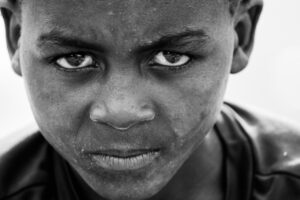
Remember being angry as a child?
Children’s anger deserves our attention. When I talk to adults about their childhood anger, they usually remember, but feel anxious talking about it. Sometimes they draw a complete blank. I definitely remember being angry as a kid, and exploring my childhood anger yields clues about my adult relationships.
Use these questions to guide you back to the child inside who may still be confused about anger.
- What upset you when you were a kid?
- How did you respond to being upset? Did you cry or did you do something else?
- When someone violated your rights or property, what usually happened next?
- Did you feel safe going to an adult to express anger? Did you feel taken seriously?
- Who listened to you the best when you were a kid? Did that person try to understand your emotions?
The Roots of Dissociation
So many of my clients tell me they weren’t allowed to show anger in their families growing up. If they revealed anger, they got dismissed or scolded. Sometimes, the adults laughed when they were mad. Naturally, this led to confusion, shame, or fear. When our naturally-occurring emotions are brushed aside or punished, we learn to distrust ourselves.
Children’s anger occurs naturally and helps them learn about the world and their position in it.
Looking at children’s anger as normal and helpful, you probably see how dissociation becomes necessary if present-moment emotions are disallowed. Children’s anger dissociation grows out of this dilemma . . .
I have to get away from my inner feelings because they’re dangerous or stupid. So I have to blame someone else, or see myself as flawed.
This profound confusion sets us up to dissociate right away. And as you know from previous posts, dissociation robs us of learning in the moment. We exit the direct experience of ourselves in the here and now. We lose time and focus, becoming overly focused on others or preoccupied with our imperfections.
But if someone takes the time to hear our anger and acknowledge its validity, we learn to trust our feelings as information. We learn to use that feeling information to know ourselves better. Then we relax and see things more clearly.
What I Needed as a Child; What I need Now
Today, we are the grownups and we make the rules. Now we decide how we treat ourselves. No one has the right to hit us or ridicule us because we feel angry. NO ONE.Think about what you wish the grownups had done for you in those angry moments so long ago . . .
- Just listened to me/heard me without telling me I’m wrong.
- Told me I’m still loved even when I’m mad.
- Encouraged me to put my feelings into words.
- Taught me how to stand up for myself in a safe, productive way.
- Apologized for hurting me.
One note of caution on finding more information: If you search for online tips about children’s anger, you’ll mostly find articles about “anger problems” in children. Here’s an exception.
Homework: Think about what your child self needed when you were angry. Now, write a letter to a child in your life, letting them know you’re learning about anger and how to express it. Ask them what it’s like when they get mad. Then listen and breathe.
Like to Subscribe?
Get notified when Deborah shares new ideas, art, and creative health information for you.
You have Successfully Subscribed!
We respect your privacy. No information will be shared.